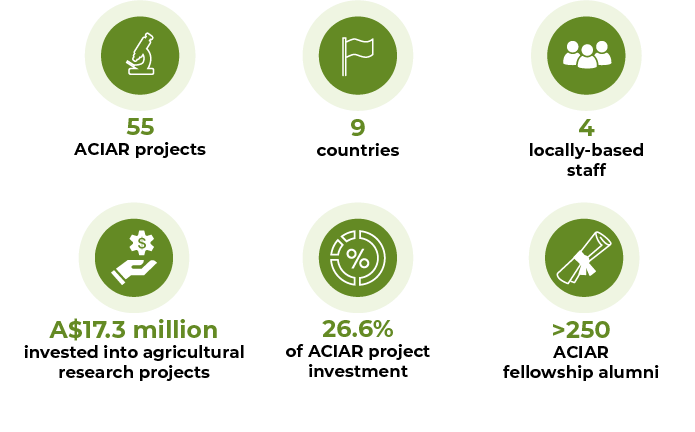Region highlights
September 2019: ACIAR attended the Pacific Week of Agriculture in Samoa. The week-long event saw agriculture ministers and representatives from 28 Pacific countries meet to discuss agricultural challenges facing the region. The conference theme encouraged better partnerships for sustainable agriculture, fisheries and forestry.
November 2019: National Plant Health Clinic Training took place in Samoa, in partnership with Samoa’s Ministry of Agriculture and Fisheries, Land Resources Division of the Pacific Community, the University of Queensland and Fiji Ministry of Agriculture. The training was attended by 31 Samoans, including 13 women, who hold leadership roles in agriculture.
February 2020: ACIAR alumni in Papua New Guinea held their first workshop, with networking and relationship building at the heart of the two-day meeting. The alumni, made up of scholarship recipients of the John Dillon and John Allwright fellowships, gathered in Kokopo, East New Britain, to strengthen their networks, reflect and share their experiences in the agriculture research sector.
June 2020: A team of ‘plant doctors’ in the Pacific islands found new ways to help farmers in Fiji diagnose and treat plant disease remotely while in-person clinics are on hold. Since the onset of COVID-19, in-person clinics have been cancelled. Plant doctors are using innovative tools and specifically designed technologies (including remotely identifying plant health problems) to support farmers.
